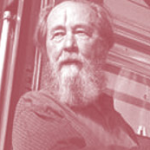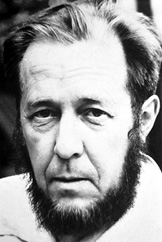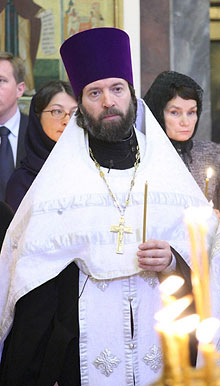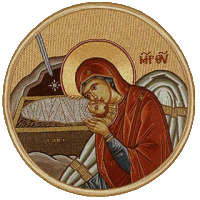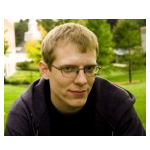
Deprecated: trim(): Passing null to parameter #1 ($string) of type string is deprecated in /home/aoiusa/public_html/wp-content/plugins/sexybookmarks/public.php on line 388
Deprecated: trim(): Passing null to parameter #1 ($string) of type string is deprecated in /home/aoiusa/public_html/wp-content/plugins/sexybookmarks/public.php on line 394
Deprecated: trim(): Passing null to parameter #1 ($string) of type string is deprecated in /home/aoiusa/public_html/wp-content/plugins/sexybookmarks/public.php on line 400
The underlying thesis in the essay below is that 1) man is fundamentally a moral being, and 2) the restoration of culture is fundamentally a moral enterprise. The essay is reproduced by permission of the Acton Institute but note something about that: There is more interest in the Orthodox contribution about the intersections of faith and culture outside of Orthodox circles than within it. What does that say about us, that we are asleep at the switch? Yes, maybe it does. Apart from the boutique issues we don’t really say much.
The author brings forward the necessity of ascetic discipline (think of it as self-discipline as an exercise not only of body but also the soul) as an ordering principle not only for the self, but the larger culture as well. No man is an island which is also to say that no man is an individual. Conservatives are correct in resisting the collectivist impulse of secular liberalism but if they think that individualism is the antidote they are mistaken and will end up living in the same arid lands of dehumanization that foster a greater loss of human dignity and ultimately liberty. A fuller vision of the human person is required and the author starts making the case for it below.

Source: Acton Institute Blog
This past Friday, I had the opportunity to present a paper at the Sophia Institute annual conference at Union Theological Seminary. This year’s topic was “Marriage, Family, and Love in the Eastern Orthodox Tradition.” My paper was titled, “What Makes a Society?” and focused, in the context of marriage and the family, on developing an Orthodox Christian answer to that question. The Roman Catholic and neo-Calvinist answers, subsidiarity and sphere sovereignty, respectively (though not mutually exclusive), receive frequent attention on the PowerBlog, but, to my knowledge, no Orthodox answer has been clearly articulated, and so it can be difficult to know where to begin. To that end, it is my conviction—and a subject of my research—that a historically sensitive, Orthodox answer to this question can found be in the idea of asceticism, rightly understood.While I will not reproduce my paper here, I wanted to briefly summarize two of its main points that might have broader interest. First of all, what is asceticism? Second, how can asceticism be viewed as an organizational principle of society? Lastly, I want to briefly explore—beyond the scope of my paper—the relevance of this principle for a free society.
With regards to the first question, it is very important to recognize that there are many forms of asceticism. Asceticism comes from the Greek word askesis and basically means exercise. Applied to our spiritual lives, it carries the connotation of denying our bodily comforts in order to train our souls through prayer, fasting, almsgiving, etc. Often, however, people only think of the negative forms when they hear the word, such as, for example, the sort of asceticism that St. Paul denounces in his Epistle to the Colossians, writing,
If you have died with Christ to the elementary principles of the world, why, as if you were living in the world, do you submit yourself to decrees, such as, “Do not handle, do not taste, do not touch!” (which all refer to things destined to perish with use)—in accordance with the commandments and teachings of men? These are matters which have, to be sure, the appearance of wisdom in self-made religion and self-abasement and severe treatment of the body, but are of no value against fleshly indulgence. (2:20-23)
The problem with this sort of asceticism was that it confused means with ends. The ascetic disciplines (prayer, fasting, almsgiving, simplicity, etc.) are not ends in themselves, not for Christians anyway. This attitude toward them can be seen in the many sayings of the desert fathers, in which, for example, they criticize those who refuse hospitality for the sake of their fast.
Rather, according to St. Moses the Ethiopian, the disciplines “are to be rungs of a ladder up which [the heart] may climb to perfect charity [i.e., love].” And according to Fr. Georges Florovsky, “True asceticism is inspired not by contempt, but by the urge of transformation.” Rather than viewing the body as something evil that deserves to be mistreated, it views it as the means by which we improve our souls, training ourselves in the virtues and, ultimately, love. It is the means by which we put to death our members on the earth and set our minds on things above (cf. Colossians 3:1-11). In this way, Christian asceticism actually has an exceptionally high view of the body: it is not evil or devoid of spiritual worth but rather essential to our spiritual development.
But how can asceticism, often associated exclusively with monks and mystics, be a societal principle? As I write in my paper,
[W]e can confirm this by reflecting on the everyday habitus of the family. Do we not call dysfunctional a family in which the children are allowed to eat ice cream for breakfast, where the family spends no intentional time together, and disobedience is never disciplined? Do we not rightly call deadbeat a parent who abandons his/her children, refusing to sacrifice in order to provide for them, instead pursuing a selfish existence? Healthy families, on the other hand, eat meals together according to their own established dietary limitations (“eat your vegetables, then you can have dessert,” for example); they share time and space with one another; the parents sacrifice their time and desires in order to work to provide for the children; the children are required to do chores to contribute to the household; and so on. Society simply does not “work” apart from ascetic self-renunciation.
I go on to clarify: “True, such asceticism may be quite light by most standards and not the perfect embodiment of the ideal, but the basic principle must, nonetheless, be present.” Understood in this way, there is no society that can survive apart from some degree of asceticism.
I find this to be a perspective particularly suited to the Orthodox tradition because there is still an expectation there that everyone would take part in asceticism to some extent. Wednesdays and Fridays are fast days, and the periods of Advent and Lent, among others, are periods where greater emphasis is not only put on fasting, but prayer, almsgiving, simplicity, repentance, etc. Intentional asceticism is still an integral part of the Orthodox ethos, and the Orthodox tradition is full of wisdom regarding the ascetic way of life.
All of this is well and good, but what does it mean for a free society? According to Edmund Burke,
Society cannot exist, unless a controlling power upon will and appetite be placed somewhere; and the less of it there is within, the more there must be without. It is ordained in the eternal constitution of things, that men of intemperate minds cannot be free. Their passions forge their fetters.
Asceticism is historically the means by which Christians train themselves, in cooperation with divine grace, to put “a controlling power upon will and appetite.” The more self-restraint people have within, the more limited government they can afford to have. The more austere people are with themselves, the more they will have to give to others, thus reducing the need for government assistance. Thus government austerity requires a culture of austerity (and generosity).
In our nation today, both are needed to a great extent. We have a problem with debt that is only getting bigger by the day, and a significant portion of it is due to making promises to future generations that we cannot realistically keep if our attitudes and practices toward debt and deficits do not change. We are simultaneously promising our children all sorts of entitlements, many of which are in fact laudable things and worth trying to save, but all of which together are economically unsustainable at our current rate. Yet if we want our government to be more austere for the sake of fiscal responsibility—and we should—then we also ought to encourage a more ascetic culture, where austerity for the sake of generosity and love, i.e. true asceticism, is seen as a way of life, what holds our society together, and the means by which we are truly free. Otherwise it will be our own passions that “forge [our] fetters,” and we will only need to look in the mirror to see who to blame.
